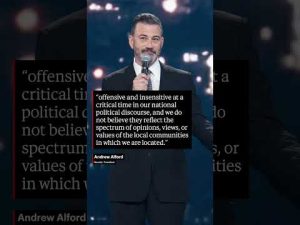In a recent congressional hearing, tensions flared as a key figure in the government found himself under fire for alleged biases and misconduct. This intense exchange highlights the ongoing battle between patriotic citizens advocating for accountability and a government that increasingly seems to operate above the law. The clash was sparked by a conservative representative’s questions directed at the FBI director, who had previously been labeled as part of a group of “government gangsters.” This term was coined by the representative in his book, which outlines the problematic actions of various officials who supposedly act against the interests of everyday Americans.
The representative pressed the director, seeking clarity on whether he would recuse himself from making decisions regarding the individuals he had previously categorized as “government gangsters.” This was not just a rhetorical question; it aimed to address the heart of the matter: can those in power fairly oversee their colleagues when they have already drawn lines in the sand? The director’s refusal to step back from these investigations raised eyebrows and concerns about impartiality. He maintained that everyone terminated from the FBI did not meet the necessary standards, asserting that these decisions were made in the best interest of the public.
The hearing quickly devolved into chaos, showcasing not only the frustration of the representative but also the reluctance of the director to acknowledge any shortcomings within his organization. The intense back-and-forth brought to light the larger narrative: that of a government apparatus which often appears unaccountable to the very citizens it is meant to serve. This incident is a clear sign of a deepening divide in how different political factions view governance and accountability.
As the representative attempted to reclaim his time and demand respect in the dialogue, it became apparent that the establishment is increasingly at odds with the very concept of transparency. The refusal to answer direct questions or address the underlying issues only fuels the fire for those who feel marginalized by a government that seems to protect its own rather than the public. The dismissive attitude observed during the hearing speaks volumes about the liberal biases embedded within the system that many conservative Americans are determined to expose.
This episode serves as a reminder that the fight for ethical government and accountability is far from over. Conservatives are called to remain vigilant and engaged, holding their representatives accountable and demanding justice in the face of political gamesmanship. Every hearing, every clash, and every assertion of power must be seen as a crucial battleground in the ongoing quest to restore integrity to American institutions. The message is clear: the American people deserve more than just platitudes; they require action and responsibility from those they entrust to lead. The events of the recent hearing underscore the urgent need for reform and restoration of trust within our government’s ranks.







